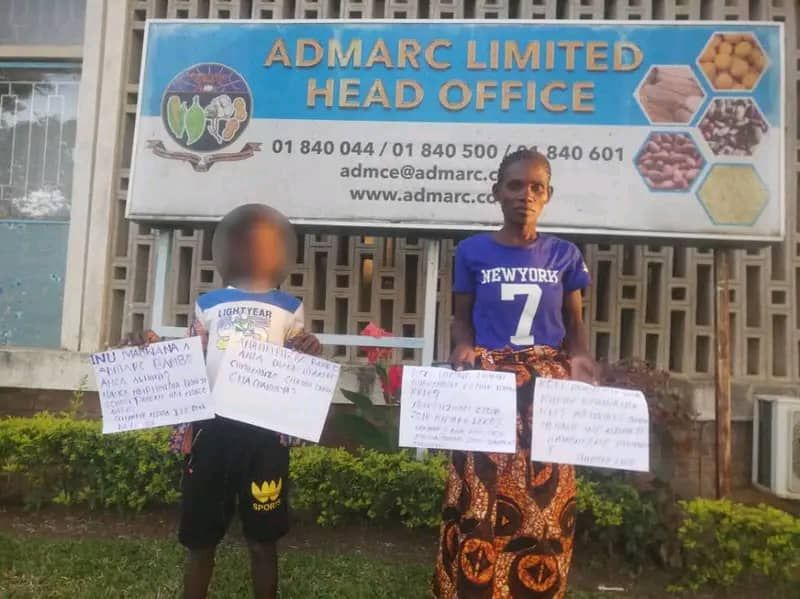By Burnett Munthali
A 40-year-old woman, Damalesi Laison Bisenti, whose husband was accidentally shot by an Admarc guard at Mbenje depot in Nsanje in 2016, has blamed ADMARC for failing to give the family compensation as promised.
The woman told Zodiak today that her husband, Laison Bisenti, who was also a community policing forum member, was shot when he was trying to help contain the commotion that erupted when villagers were scrambling to buy maize.
Damalesi say she has been struggling to take care of the four children because of a lack of financial resources, to the extent that some children have dropped out of school.

The woman adds that they once visited Admarc head offices in Limbe to push for compensation, but to no avail.
ADMARC spokesperson Agnes Ndovie asked for time to get finer details of the alleged incident, considering that it happened some years ago and that most current members of staff are new and need to fully understand the matter before action is taken.
Unintentional shootings can lead to criminal charges, ranging from misdemeanor criminal negligence to felony-level manslaughter. Accidental shootings that result in fatalities attract more serious charges. You need to have a criminal defense attorney on your side anytime you are likely to face criminal charges for accidentally shooting someone. Your attorney will protect your rights and determine the best legal defense and arguments to raise. The attorney will also devise an effective strategy for weakening the prosecution’s case and lowering your chances of getting convicted.
A person who shoots and kills another person can face a second-degree manslaughter charge. Manslaughter is a felony-level offense. It is commonly known as criminally negligent homicide. A manslaughter conviction can arise if a person dies due to the offender’s grossly negligent actions or inherently risky conduct.
Courts often consider mitigating and aggravating factors when determining sentences for manslaughter convictions. The ensuing sentences usually comprise penalties like imprisonment or fines or both.
Wrongful death compensation is calculated based on a monetary amount that covers both economic and non economic losses for the survivors, usually children and spouses of the deceased, the parents of a deceased minor child, for the deceased’s estate, and for blood relatives or adoptive siblings who are in some way dependent on the person.
If you have lost a loved one through someone else’s negligence, you may be entitled to compensation through a wrongful death claim for awards starting from when the injury occurred up to the point of death, plus interest. Well placed teams should be contacted by affected individuals and families.
*Wrongful Death Compensation Damages You Could Win*
Wrongful death occurs when an individual is at fault and liable for another’s death, such as through reckless and risky driving. Wrongful death is a civil tort claim that is independent of any criminal charge. The idea behind it is that the wrongdoer should pay for the losses, not the survivors. The alleged negligent party may pay the deceased’s survivors or their estate the awards.
*Depending on your state, in a wrongful death lawsuit, you may be entitled to awards for economic losses like:*
Hospital, pharmaceutical, and medical expenses before death.
Wages lost after the accident and before the decedent passed.
Funeral expenses if the survivor or estate paid.
*You may also be entitled to receive awards for non economic losses like:*
Pain and suffering your loved one experienced before death.
Surviving spouse’s lost companionship and protection.
Surviving spouse’s pain and suffering.
Loss of parental training, companionship, and guidance for minor children.
Pain and suffering for parents who have lost a child.
*The financial and emotional support you expected to receive from your loved one may also be covered in the compensation. This could include anything from daily assistance to the decedent’s savings you would have benefited from. The amount of support each family member can collect is based on a few factors:*
Your relationship to the deceased.
The cost of replacing services rendered by your loved one.
The amount of net income available to distribute.


